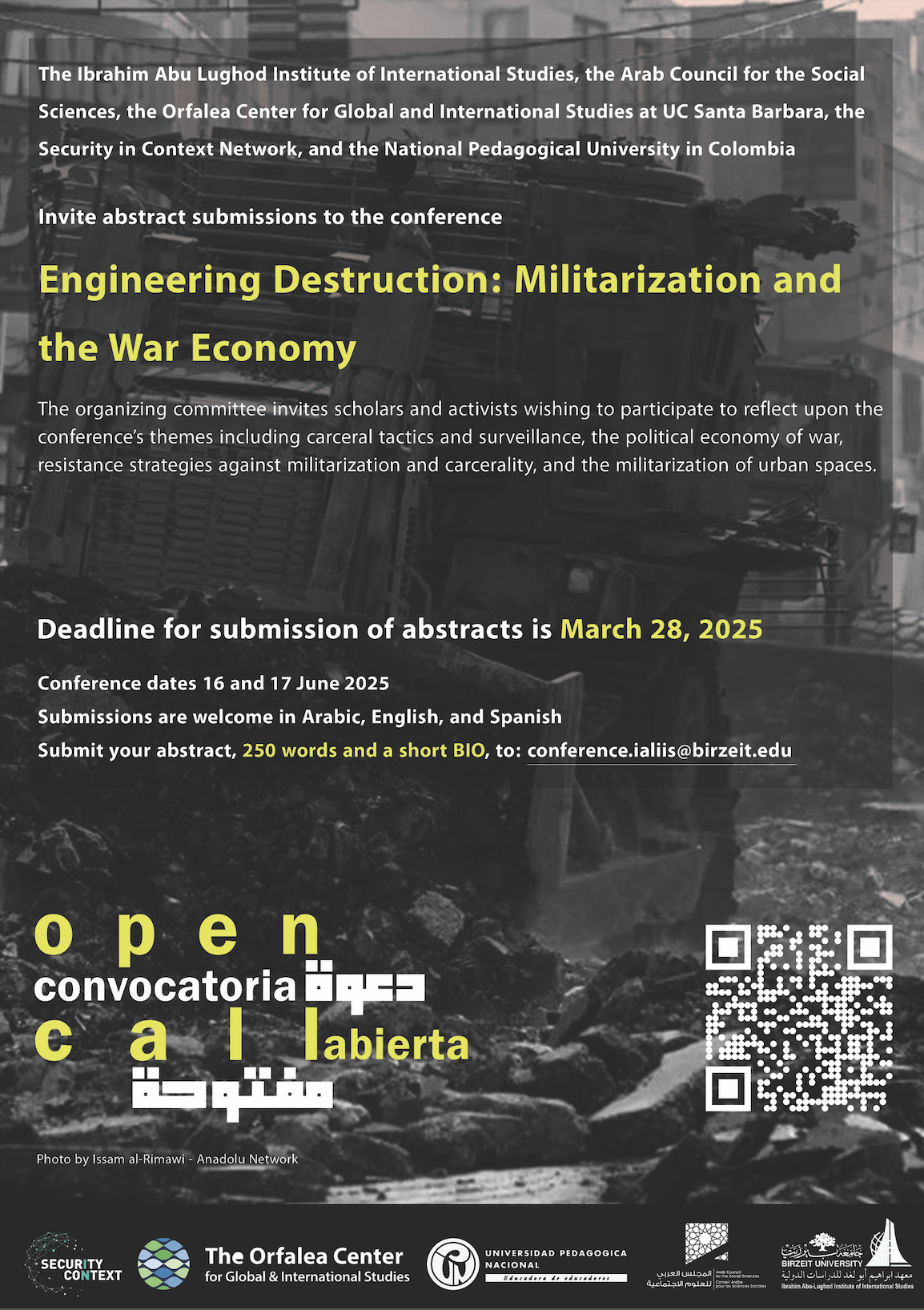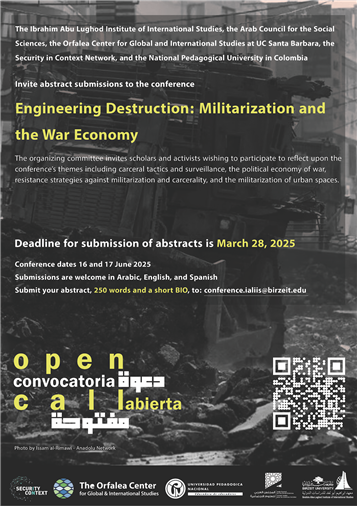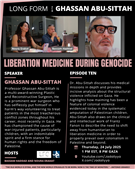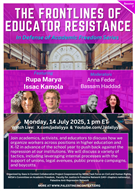[The following is a call for submissions to an uprcoming conference, Engineering Destruction: Militarization and the War Economy, taking place on 16 and 17 June 2025. Scroll down or click here for information on how to submit.]
Wars have long been connected to the construction of states, advancing economic interests, and expanding networks of influence. Indeed, Militarization and the globalization of security are a defining feature of today’s world. From the mercenary armies of ancient empires to the military-industrial complexes of modern states, wars have not simply reflected ideological struggles or territorial disputes, but are central to the reshaping of economies, forging alliances, and imposing hegemony. Militarization is visible through the heightened presence of armed forces in public spaces, the ghettoization of communities, the reliance on carceral tactics, the constant surveillance of populations, the growth of private armies and mercenaries, the booming global arms trade, and the intensification of the use of new warfare technologies. Wars have transformed communities into laboratories for the expansion and development of technologies of death and destruction.
Militarization and its impact on capital accumulation and international relations have been the subject of profound philosophical and academic debates, with scholars and authors discussing the ways in which wars and militarization are used to reorganize economies and the global order, and their impact on global hegemony and security. The broad and interdisciplinary set of literature brings interesting discussion and analysis into the political economy of war and militarization, and their impact on communities and manifestations of power relations between the south and north.
The intersection between power, economy, politics, and international relations which signals the relationship between war-making and the war economy, is not only reflected by ongoing wars including the Gaza genocide and the Russian-Ukraine war. It extends to other parts of the world, and includes military occupations, the construction of walls and borders, the inflaming of sectarian, ethnic, and religious strife to stimulate the arms market, carceral policies, and biometric technologies and artificial intelligence used to control and silence “unwanted” voices. These militarized realities are transnational in their formation with states and non-state actors sharing violent tactics and know-how, in effect creating a continuum of violent policies and practices that transcend national boundaries.
Nonetheless, marginalized and oppressed populations whose rights are infringed upon and livelihoods threatened, have continuously sought ways of resisting militarization and violence. Indeed, social and political movements –adopting both non-violent and violent responses – have long resisted against militarization through the organizing of protests in public spaces, campaigning for the boycott of foreign companies, and creating social and economic movements that counter war-making and the neoliberal order. Manifestations of these responses also include the organizing of strikes, resisting carceral regimes, engaging in cultural and political productions against militarization, and fostering global forms of solidarity.
The increased militarization of societies and reliance on crude forms of violence and torture have severely negated peoples’ human rights and freedom of expression, a reality exacerbated by the violent and brutal response unleashed against those standing in solidarity with the Palestinian people as they face Israel’s genocide and its war machine.
The organizing committee invites scholars and activists wishing to participate to reflect upon the conference’s themes including carceral tactics and surveillance, the political economy of war, resistance strategies against militarization and carcerality, and the militarization of urban space. The following themes are suggested, but submissions can address other topics related to conference’s broad areas of interest.
- The policing of urban spaces
- Carceral tactics and surveillance
- The political economy of war
- Managing carceral settings and subjects
- Resistance strategies by carceralized populations
- The globalization of security
- Solidarity movements and confrontation practices
- The military industrial complex
- The militarization of urban space
Paper Submission
Abstracts of papers (around 250 words) along with a short bio should be sent to conference.ialiis@birzeit.edu no later than March 28, 2025. We ask that those who are selected to participate send their full papers (4000 – 6000) by May 30, 2025.
Languages
We invite submissions in English, Arabic and Spanish. The conference will be organized in hybrid format at Birzeit University and streamed online. Simultaneous translation will be organized as needed.
Publication
The organizers intend to publish the proceedings after the conference. Further information on publication details and mechanisms will be sent to conference participants in due course.



















